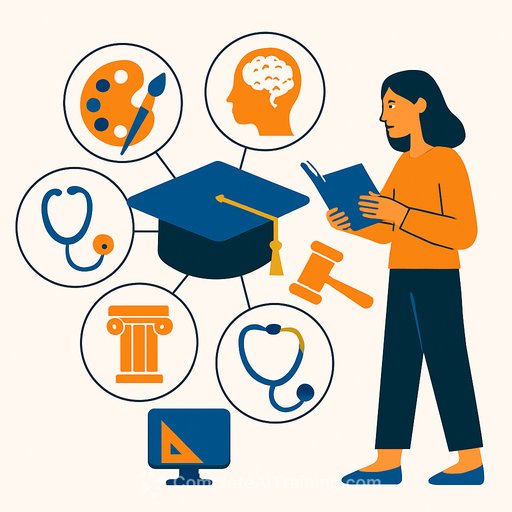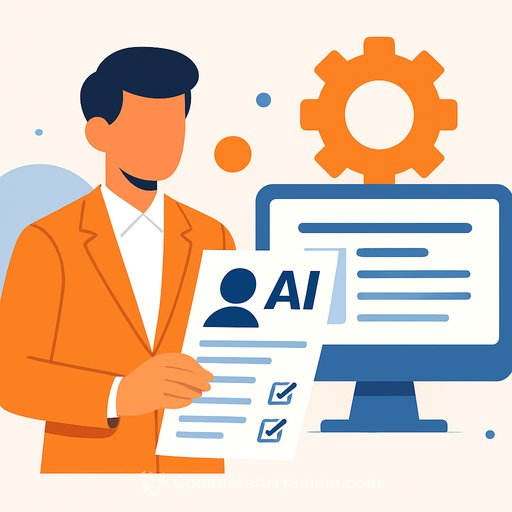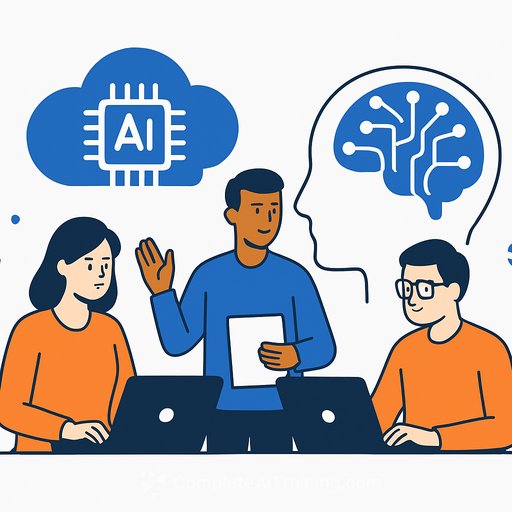As artificial intelligence reshapes the job market, choosing a degree that highlights human skills like empathy, ethics, creativity, and adaptability is essential for career durability. Fields that rely on these uniquely human qualities remain secure, especially when combined with digital literacy to stay relevant alongside AI advancements.
6 Degrees That AI Can’t Replace: Skills That Matter Most
When considering future-proof careers, degrees focusing on human judgment and emotional intelligence stand out. AI can handle data and automation but struggles to replicate genuine empathy, ethical reasoning, and creative problem-solving. Here are six degrees that emphasize these irreplaceable skills and offer strong career resilience.
Healthcare and Medicine (e.g., Nursing, Psychiatry)
AI can analyze vast amounts of medical data, but it cannot replace the empathy and nuanced decision-making required in healthcare. Roles like nurse practitioners rate high for social perceptiveness, highlighting the demand for emotional support and human connection in patient care. Digital skills complement these professions, but the human touch remains critical.
Education and Teaching
Teachers provide mentorship, emotional support, and adapt lessons to individual student needs—areas where AI tools fall short. While AI may assist with tasks like grading or planning, it cannot inspire or motivate learners the way a human educator can. Degrees in education remain vital for fostering emotional development and critical thinking.
Mental Health and Social Work (Psychology, Counselling)
Trust and emotional connection are central to mental health professions. AI lacks the capacity for genuine empathy, confidentiality, and ethical judgment needed in counselling and social work. These fields depend on human sensitivity and moral reasoning, which AI cannot authentically replicate.
Law and Public Policy
Legal and policy work requires ethical discernment, persuasive communication, and complex judgment—skills beyond AI’s full scope. While AI can support legal research, the creativity and nuance involved in arguing cases or shaping policies rely on human insight. These professions continue to demand uniquely human competencies despite AI assistance.
Skilled Trades and Engineering Technologies (Mechanics, Plumbing, Engineering)
Physical dexterity and hands-on problem-solving keep skilled trades and engineering roles less vulnerable to automation. These careers require adaptability and real-world judgment that AI cannot generalize. Engineering degrees score high for AI resilience, reflecting the ongoing need for creative human input in technical fields.
Creative and Communication Fields (Public Relations, Digital Marketing, UX)
Creativity, cultural insight, and emotional resonance are at the heart of communication and creative professions. AI can simulate content creation but cannot originate authentic stories or understand cultural context deeply. These fields rely on emotional intelligence and storytelling, qualities that remain distinctly human.
Research shows AI increases demand for skills like digital literacy, teamwork, and resilience, while routine tasks face decline. Combining human-centered degrees with AI tool proficiency offers the best path for staying competitive. For those in education and related fields, exploring courses on AI and digital skills can strengthen your career foundation—see Complete AI Training’s latest AI courses for practical options.
Choosing degrees grounded in empathy, ethics, creativity, and adaptability ensures your career withstands the growth of AI. Pair these with ongoing digital learning to maintain your professional edge.
Your membership also unlocks:




